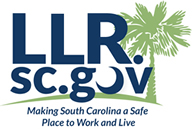The Federal Housing Finance Agency (FHFA) just announced that they will direct Fannie Mae and Freddie Mac (the Enterprises) to raise their guarantee fees (g-fees) on high-cost loans and 2nd homes starting April 2nd.
The fee increases will not apply to the Enterprises’ products for low-down payment borrowers whose income is 100% or below of the local average median income. The fees translate into roughly 0.05%-0.15% (e.g. 4.05% vs 4% today) higher on high-cost and 0.225% to 0.75% higher on 2nd homes.
This change will obviously have an impact on affordability in high-cost areas (California, Chicago, Washington, DC, etc.) and areas with concentrations of second homes such as coastal markets. These changes may compound the impact of changes in segments such as 2nd homes and condos that have seen several rule changes over the last 12 months and face new changes on documentation and reserve requirements.
NAR opposes g-fee increases, but to the extent that these help Fannie and Freddie to maintain broad liquidity as the federal government pulls back on its unprecedented support during the pandemic, the changes could be helpful.
Back in January, the FHFA put caps on how many second and investor loans the Enterprises could by as well as loans for borrowers with multiple risk factors like first-time and under-served borrowers. These caps did not reflect risk and were permanent. However, these fee increases do reflect risk, are not permanent, and can be changed as risks abate. In addition, borrowers impacted by the caps often faced much higher fees from purely private lenders than they face by these increases. Thus, the fees are not expected to have an onerous impact on the market.
While disappointing, the fee increases could help the Enterprises to maintain access and affordability by avoiding future fees if the market begins to hit bumps (e.g. foreclosures) in the months/years ahead. Furthermore, to the extent that the higher fees are used to support access and affordability to other groups, rather than higher returns for shareholders, this could help NAR’s members.
NAR will continue to monitor for the impact on the market and voice concerns to the FHFA if they develop, while advocating for further support across the spectrum.



